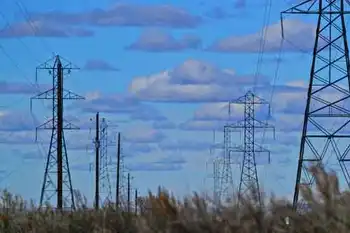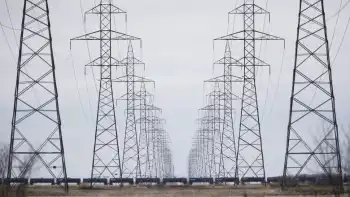Greener buildings called quick climate change fix
By Toronto Star
Substation Relay Protection Training
Our customized live online or in‑person group training can be delivered to your staff at your location.

- Live Online
- 12 hours Instructor-led
- Group Training Available
The greening effort would also be the easiest, quickest way to combat climate change, says the report for the Commission for Environmental Cooperation, which was created under the North American Free Trade Agreement.
A good place to begin would be to scrap Ontario's new building code and replace it with a much tougher version, says Jonathan Westeinde, an Ottawa-based green developer who chaired the report's 10-member international advisory group.
"The (provincial) government wanted to go further" with the new code, which doesn't even come fully into force until 2012, Westeinde said in an interview. "But the development industry lobbied not to get pushed too hard, too fast."
The report, published after a two-year study, states that in Canada, buildings account for one-fifth of all energy consumption. That figure rises to 40 per cent in the United States, with Mexico midway.
Buildings are also responsible for 35 per cent of North America's greenhouse gas emissions. Energy consumption and emissions could be cut by one-third with reasonable green measures in new construction and retrofits, the report says.
Buildings "represent... the lowest-hanging fruit in terms of having an impact on climate change," Westeinde said. By 2030, the industry could cut greenhouse emissions from buildings by about 1,700 million tonnes, equal to the current total from transportation in the United States and more than double Canada's emissions this year.
Europe, where energy costs are higher and building codes stricter, is well ahead of North America, where politicians still set only minimal standards, leaving it up to developers to do better if they choose to.
Very few do, Westeinde said. Only 4 per cent of current construction in the three countries meets any form of green standard.
New homes are, on average, a bit more efficient than those from two decades ago, but "the average dwelling is getting bigger, so it's a losing battle," Westeinde said.
The report, since it's aimed at North America, supports incentives and promotion of the benefits of efficiency, he said.
"But the rope is only so long," he said. "If the private sector doesn't start moving the bar forward, the public sector will have to do it with regulations."
"In the United States and Canada, many efforts are underway to accelerate the market uptake of green building," the report states.
"Economics are helping to drive these changes" as the cost of sustainable technologies falls.
Still, most builders continue to take a short-term approach, designing and constructing to the minimum standard, to keep their up-front costs as low as possible. With homes, condos and many commercial and industrial buildings, they're not responsible for ongoing expenses.
Those that try to do a better job are less competitive in the mass market because they must charge higher prices, and most buyers aren't impressed by the fact they'll eventually be repaid in energy savings.
Imposing higher standards would help create a level playing field, Westeinde said.
"The biggest thing motivating the private sector is the financial model. If you wanted the quickest change, you'd regulate the industry.
"Everything else would figure itself out."











